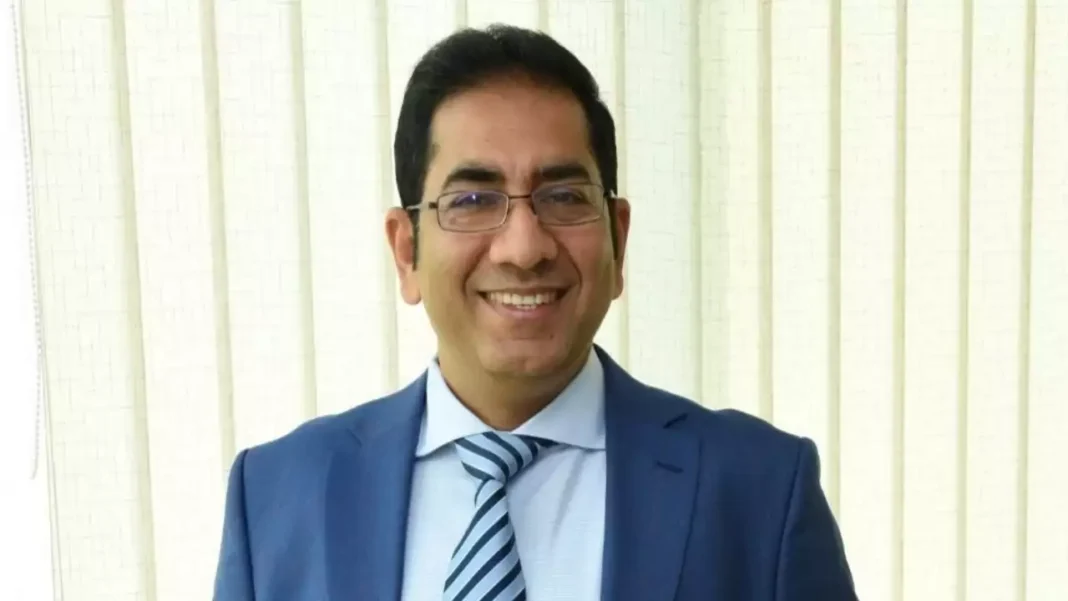In the coming years, the Indian retail industry is set for significant growth, as emphasized by Mohit Malhotra, CEO of Dabur. He anticipates its potential to reach a $2 trillion market, creating employment opportunities for 25 million individuals. Malhotra underscores that this surge will play a pivotal role in contributing to India’s GDP and overall economic advancement.
During his address at the Great India Retail Summit 2024, he highlighted that the primary catalysts reshaping India’s growth trajectory include the rise of the affluent demographic, the emergence of Bharat, and the widespread adoption of technology.
“India is changing at a fast pace in demographics, psychographics, usage behavior, and purchase behavior as the consumer is changing, and along with this, their buying patterns are also changing. Mom-and-pop stores were taken over by the modern trade, and it is now replaced by e-commerce,” he said.
Currently, e-commerce penetration in the nation stands at 7-9 percent, a significant increase from less than 1 percent five years ago.
Continue Exploring: India’s retail market set to hit $2 Trillion in next decade: BCG-RAI Report
“At Dabur, e-commerce contributes to 10 per cent of the business. It’s amazing, the way technology is changing the retail landscape,” he said.
He added that credit card penetration in India is at 6 percent, while UPI penetration is around 30-40 percent.
“Indian consumer is becoming richer as per capita income in the last 12 years has risen to double from $1,400 to $2,500 and is projected to be going at $4,000,” he said.
“Going ahead, India will have higher disposable income as 50 per cent of the population of this country will be earning around INR 3 lakh plus every month. So, one in every four households will belong to the upper middle class and this leads to premiumisation and personalisation,” he further added.
Talking about shifts in consumer behavior, he observed that India’s population is younger. This younger demographic favors brands, retail environments, and ecosystems that prioritize responsibility, sustainability, social improvement, respectfulness, and transparency. He stressed that clean labeling signifies the future of the country.
“Going ahead, consumers will embrace only those brands who believe in not marketing but in transparency, trust, and genuineness,” he stated.
In India, the growth is going to come from the nine metro cities, and 30-plus boom towns, along with 50, 000 plus villages in Bharat, he said.
Continue Exploring: Retail boom in tier-2 Indian cities: Global brands and local players invest heavily as economic growth spurs consumption hubs
“The consumption in rural is going to be 4.3X as compared to urban growth, which is going to be 3.5 X. So Bharat becomes as important as urban,” he asserted.
“Going ahead, rural shrinkage will happen because the economic power will move up in the country and India will also become urban and that’s what we call Viksit Bharat,” he further added.
The growth in rural India will be led by increased penetration and a transition from unbranded to branded products.
Additionally, there is a rise of new-age channels entering the country such as modern trade, quick commerce, e-commerce, and O2O. However, each channel operates with a distinct approach and caters to a unique consumer base, he remarked.
“This retail change is leading to the birth of digital-first brands and paving the way for premiumisation and personalisation,” he said.
“Apart from this, the path to purchase is also changing now. Instead of TV commercials, mobile has become the path to purchase. Social media has become an important tool. So, almost 30 percent of our spending today is on digital media or social media,” he further added.
Wrapping up the session, he mentioned that currently, 70 percent of the business still occurs through traditional trade. To keep pace with the evolving retail landscape, there’s a need to adapt and readjust; otherwise, profit margins may dwindle, potentially hastening the decline of traditional trade.
“Mom-and-pop will have to reconfigure them to self-service stores or standalone modern trade stores. They will have to adopt technology and install a POS and billing software,” he said.
“Every retailer has to become relevant. Retailers will have to gear up to be on ONDC, and become more technology savvy. Retailers will have to increase relevant assortments and channel financing will become important,” he further added.
He concluded by stating that physical stores will increasingly transform into experiential centers where customers can interact with and experience products firsthand, although ultimately, purchases may occur online.
Continue Exploring: Dabur announces INR 135 Crore investment for new greenfield facility in South India


